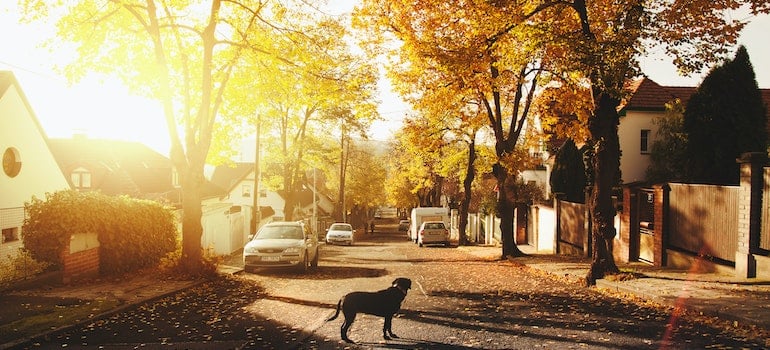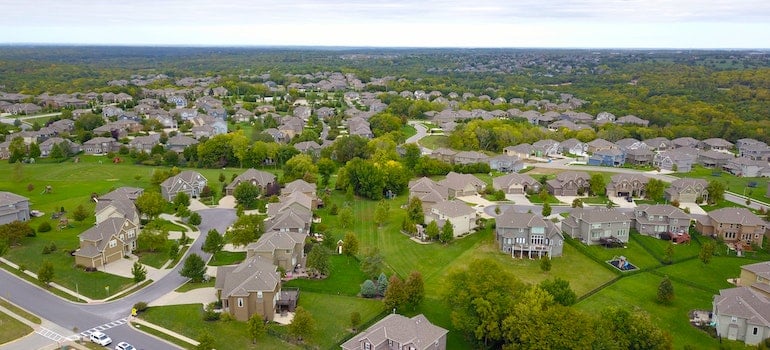It’s time to talk about a life-changing transition: moving from a metropolis to a smaller city. It’s no secret that many people yearn for a slower pace, a closer community, and a more relaxed lifestyle, often found outside large cities. This is where SF Moving steps in, offering expert guidance on making such a change smoothly. Shifting from an urban jungle to a calmer environment can be challenging yet immensely rewarding. However, the whole transition isn’t only about packing and transportation but also about adapting to different lifestyles, economies, and social structures. So, let’s explore together what it means to swap skyscrapers for quaint downtowns and how to navigate this significant move seamlessly.
Comparing costs: metropolis vs. small city
In metropolises, life’s expenses tend to tower high. New York, Los Angeles, or San Francisco, for instance, demand a hefty cost of living. The high prices result from the density of opportunities, cultural diversity, and range of amenities these cities offer. On the contrary, small cities, such as East Palo Alto, tend to be easier on the pocket. Housing, transportation, groceries, and healthcare costs are often significantly lower. The difference, though, is not without a trade-off. Now, picture a potential move from a metropolis to a smaller city. Perhaps, you consider hiring East Palo Alto movers to help with the transition. In the new location, you might find a slower pace of life, less crowded spaces, and a sense of community. Yet, opportunities may seem scarcer. Therefore, while small cities offer a lower cost of living, they may also require you to adjust your lifestyle and expectations.

Comparing the quality of life
In a big city, life speeds by. Tall skyscrapers, swarms of people, and lively nightlife define it. Here, opportunities abound in work and entertainment, creating a dynamic yet demanding lifestyle. The convenience of services is unbeatable, but it often comes with high living costs and stress. You may find the noise, pace, and pressure overwhelming.
Conversely, life in a small city like San Carlos carries a different rhythm. The charm lies in its slower pace, tight-knit communities, and lower living costs. You exchange the frenzy of a metropolis for ample green spaces, less crowded streets, and tranquil neighborhoods. Less traffic and pollution make for healthier living conditions. This is what you can get when moving with San Carlos movers. Job opportunities may be fewer, but the work-life balance improves significantly. And thus, so does the quality of your life.
City size and community connections
People often feel lost in the crowd in large cities. The city’s size, the pace of life, and the anonymity can become overwhelming. On the other hand, smaller cities like Menlo Park foster a sense of community. With fewer residents, individual connections carry more weight. Interactions become more frequent and personal. People tend to know their neighbors and work hard to foster meaningful relationships. Menlo Park movers, for instance, often witness the warm farewell of neighbors and the eager welcome of new ones. This contrasts with the metropolitan moving experience, which can feel isolated and impersonal.

Moving from a metropolis to a smaller city and changes to expect
Transitioning from a bustling metropolis to a small city, you’ll certainly feel the shift in pace. Instead of rushing in overcrowded subways, you might leisurely drive or walk to work. Swap the constant din of traffic for the subtle sounds of nature. The frantic race against the clock slows to a more manageable tempo in a small environment, where things generally seem less hurried. But it’s not just the pace; your social activities will likely change too. While large cities boast endless options for nightlife and entertainment, life in those that aren’t that big in size is more about fostering real relationships. You may replace anonymous nights out at crowded clubs with friendly gatherings at local pubs or community events. Your social life may evolve from anonymous to intimate.
Uncovering the economy of the smaller communities
Small towns often offer surprising opportunities in terms of employment. Initially, lower living costs become the biggest attraction. A dollar goes further when the price of housing, groceries, and other necessities is lower. Consequently, even salaries that seem smaller on paper might provide a comfortable lifestyle. This is what you can generally expect from less-crowded cities and their economies.
- Local economies often rely on unique industries. These could be sectors like agriculture, small-scale manufacturing, or specialized services. Thus, job seekers with specific skill sets might find niche roles that larger areas do not offer.
- The local community benefits from job growth. More employment means more income. In turn, this wealth flows into local businesses and public services, fostering economic growth.
- Remember that smaller cities might have fewer job opportunities overall, but their proximity to large ones could make commuting to work rather simple, making it possible to work in a busy environment while living in a peaceful one.

Should you move to a smaller city?
While moving from a metropolis to a smaller city does come with its fair share of challenges, it holds a plethora of benefits that promise to elevate your quality of life. The charm of smaller towns often lies in their less congested roads, stronger community bonds, lower cost of living, and greater proximity to nature. These factors bring the much-needed serenity and balance into life, which a metropolis might struggle to offer. What’s more, less noise pollution and a slower pace can significantly improve one’s mental health. So, if you seek tranquility, don’t be afraid to make this transition. Truth be told, there’s not much you can lose but much to gain!


